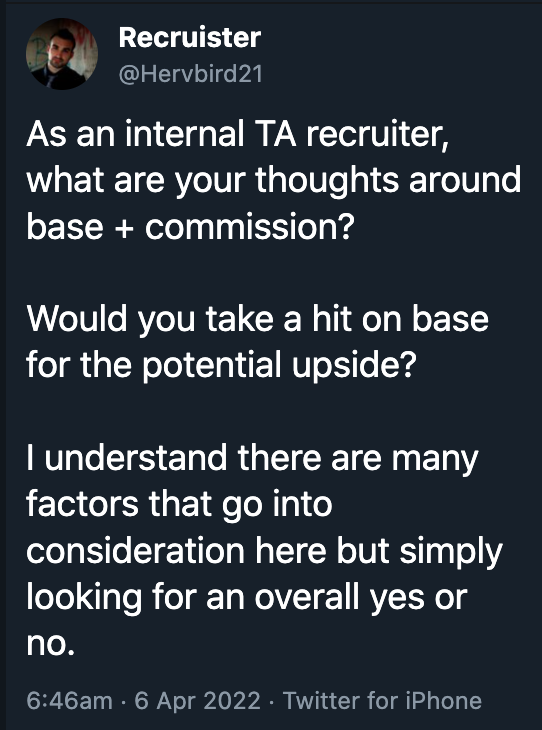Yo! I’m still out in Denver at the glorious Gaylord Rockies for SHRM Talent. If I don’t make it back to Lansing, MI, there’s a 74% chance I got lost in the Gaylord and I’m thriving off the food small children dropped along the way.
Some common themes coming out of SHRM Talent:
- Hiring is hard.
- Employees seem changed. Neither good nor bad, but different.
- There’s a new normal, but we don’t know what that normal is yet.
One of those things that a lot of folks are talking about is what most of us consider the normal career ladder. You start at the bottom and then you spend the next 40 years of your life climbing up it, and then you die. Turns out, people seem to think that isn’t as glorious as we make it out to be.
The problem is we still view this climb and desire to climb as one of the main characteristics of a great employee. Another problem is people want more and more money and the way to get more money is to get promoted. Another problem is many times the people who want to move up, actually suck at the next level. Another problem is we use the promise of promotion as a way to retain talent when our total compensation isn’t great.
We’ve got 99 problems, and moving up the career ladder is one big one!
How could we burn down the ladder and create something else?
If I had this answer, I would not be writing blog posts from the desk at a Marriott hotel in Denver on a Tuesday evening! Let’s be honest.
What I know is the future of talent development is going to look different. There will be ways for employees to move horizontal, down, and on an angle, not just up. We will figure out the compensation stuff. I mean we already have, but we get caught up in traditional compensation design and philosophy, another problem. Traditional labor seniority systems really did a job on us over the decades! We fight constantly to stay within those constraints at all levels and within all industries.
I think it starts with us developing employees around a concept of professional competence and skill development, and not around the next level up within the organization. There use to be a time in our world were we valued mastery. We devalue mastery in today’s world, and we overvalue one’s ability to navigate the path upward. Our children are taught that they should strive for and desire upward levels. Instead of reaching mastery within a field.
That’s a hard organizational culture shift to make happen.
I think the tech world might have a better chance of reaching it faster. In that world, the value of mastery is greater. You can be a master developer and definitely make more and bring more value to a company than the manager of product management. And that’s not dumping on someone who wants to lead people, because we all know how difficult that is as well. But, just because you lead people doesn’t mean you necessarily are more valuable than the people you lead individually.
It’s such a complex and difficult topic, which makes it fascinating to talk about the future and its potential. To work in a world where each person is valued on their individual skill set and not based on the level of organizational ladder achievement would definitely be something to see. I think we all know some managers that would be in for a pay cut!


